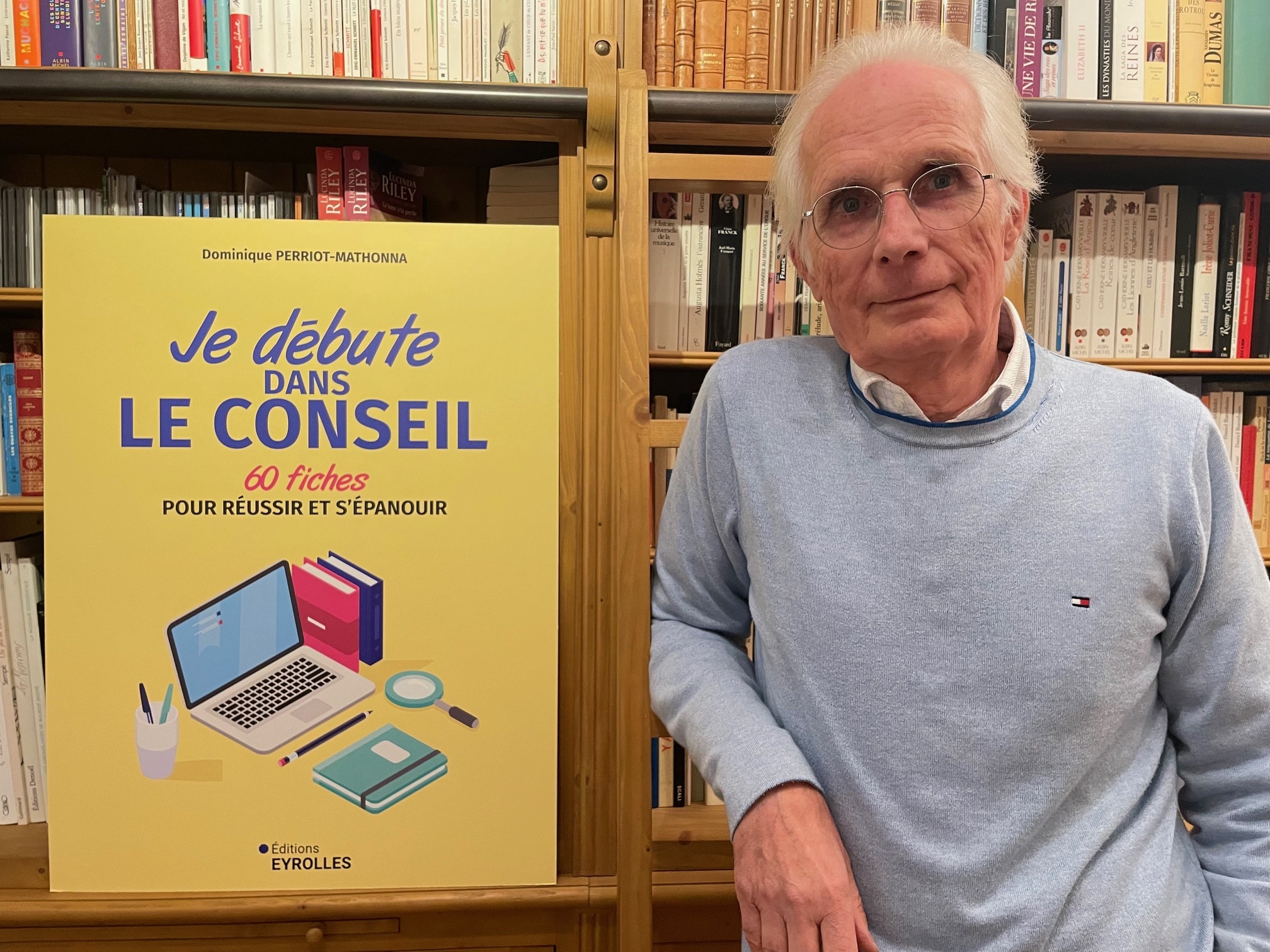
What does it mean to be a consultant today? Dominique Perriot-Mathonna, author of “I’m just starting out in consulting”takes us behind the scenes of a profession that is as demanding as it is educational, sharing practical advice and secrets for success in this field. Between varied days, intellectual challenges, and direct interactions with clients, he explains to us why consulting constitutes an intense and enriching training school for young talents.
What is the consultant’s life like?
Dominique Perriot-Mathonna: I would use 3 qualifiers: varied, engaged and enriching. Here is an illustration of the typical day of a consultant. In the morning, he will work on a proposal: he must think, create, write on a prospective subject under the guidance of a manager. At the start of the afternoon, led by another manager, he interviews a client as part of a mission and must adapt to the context. When he returns to the office, he writes the report, then prepares a presentation for the next morning, which uses his ability to summarize.
How can being a consultant be a good start to developing your professional career?
Dominique Perriot-Mathonna: Some young consultants describe the start of their career as a very well-paid internship and permanent contract. We learn every day from our managers, we are in contact and in direct contact with customers, therefore with reality; we encounter very varied issues and environments!
What qualities do you need to have to succeed in consulting?
Dominique Perriot-Mathonna: I classify them into 3 areas. Intellectual qualities first: curiosity, critical thinking to analyze and discern the essential. Relational qualities then: knowing how to listen, on the one hand and explaining, passing messages on the other. Finally, behavioral qualities namely: discipline, rigor and adaptability.
You mention the process of “making” the consultant, that is to say? What are the steps?

Dominique Perriot-Mathonna: What I say in my book is that it is a profession that is learned every day and largely through practice in the field. Schematically, we first learn to listen (to the client), then to write (reports, deliverables, proposals, etc.) and, finally, to speak (present, argue, convince).
How to approach your first mission?
Dominique Perriot-Mathonna: The first mission is the baptism of fire: how to be taken seriously by a manager accustomed to contact with the firm’s managers? To avoid falling into imposter syndrome, that is to say fear of making a mistake, of not having the right skills, of not achieving the objectives, you must actively participate in the mission, which means to inform yourself, read, listen and propose. The rest is the responsibility of the mission manager who will have to set realistic and achievable objectives for our junior.
What are your tips for leading a mission “well”?
Dominique Perriot-Mathonna: Leading a consulting mission is a set of activities: directing the work of the mission, which requires delving deeper into the client’s problem by looking broadly and far; it means managing a project by rigorously following the parameters of deadlines, budget, quality; it is above all managing the team, that is to say delegating, releasing initiatives and giving confidence to the consultants.
What advice would you give for creating a lasting relationship of trust with customers?
Dominique Perriot-Mathonna: The consultant must reassure the client through the stability of his beliefs, give him confidence through loyalty in his behavior and loyalty in his commitment. In action, this means getting involved in the client’s issues, nevertheless remaining in your role as consultant without trying to make or decide for them and above all providing inspiration, an outside eye and an original angle of view. .
What advice would you give to a consultant for building a strong network in this sector?
Dominique Perriot-Mathonna: Whether a man or a woman, the network is the means for the consultant to extend his circle of influence, to consolidate his credibility and legitimacy. He will have to develop this network internally at his client through privileged exchanges with opinion leaders (lunches, face-to-face meetings, etc.).
Externally to the client company, it will need “ show off »: attend alumni meetings, speak in round tables, appear on social networks with in-depth articles to demonstrate solid know-how.
Do you have a leadership role model or mentors who have inspired you along your journey?
Dominique Perriot-Mathonna: A mentor, not really, but I was inspired by the experience of my partner who had already practiced this profession before we met: together, we founded and managed consulting firms and the adventure lasted 30 years.
During this journey, my objective has always been to delegate, to trust, to transmit to allow young recruits to improve their skills. Young women were the subject of particular attention in order to give them the opportunity to assert themselves and become female role models, who are still rarely present in the world of consulting.
I wrote my book in this same spirit: to give ideas and share my experience so that everyone can grow and flourish.










